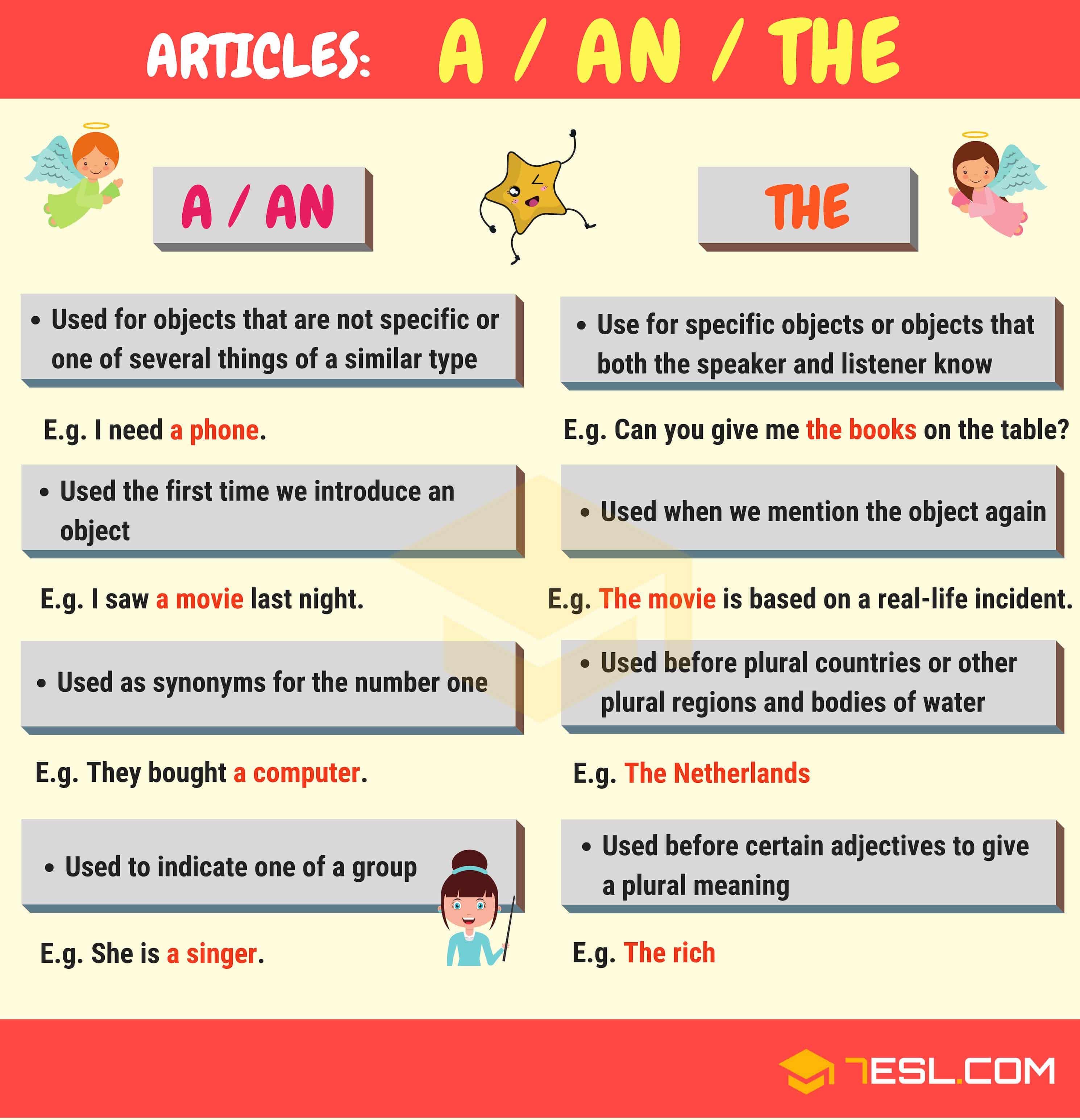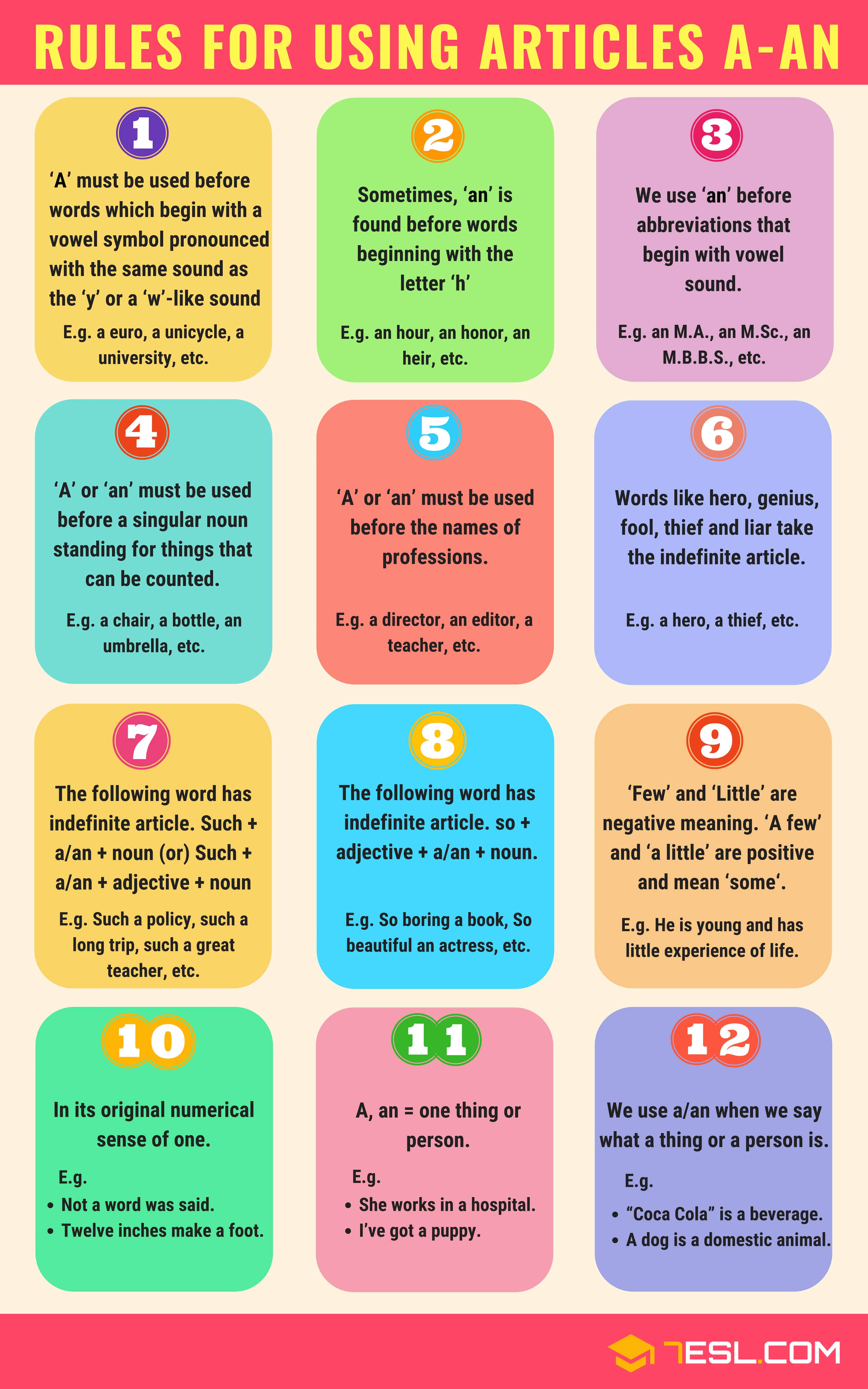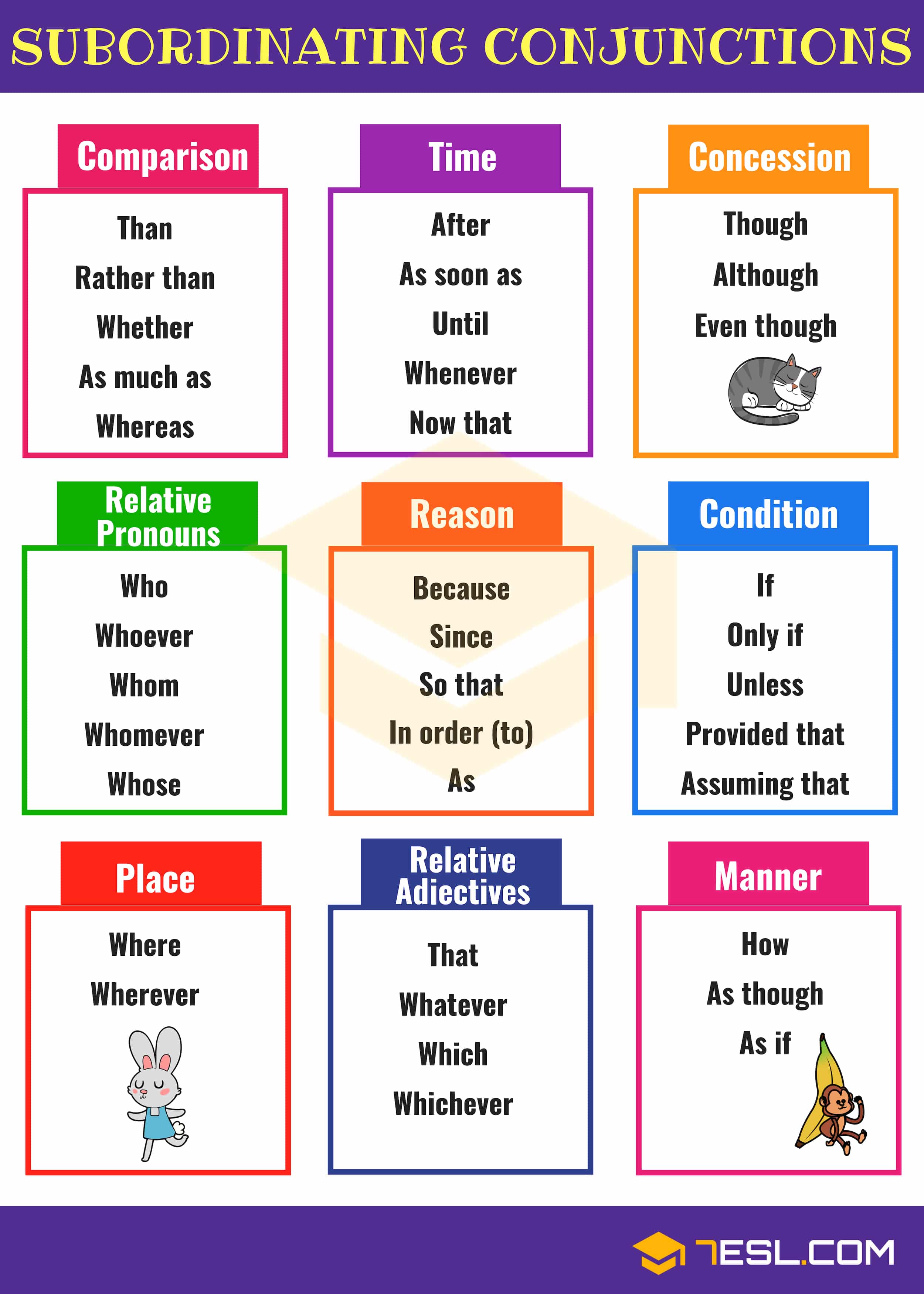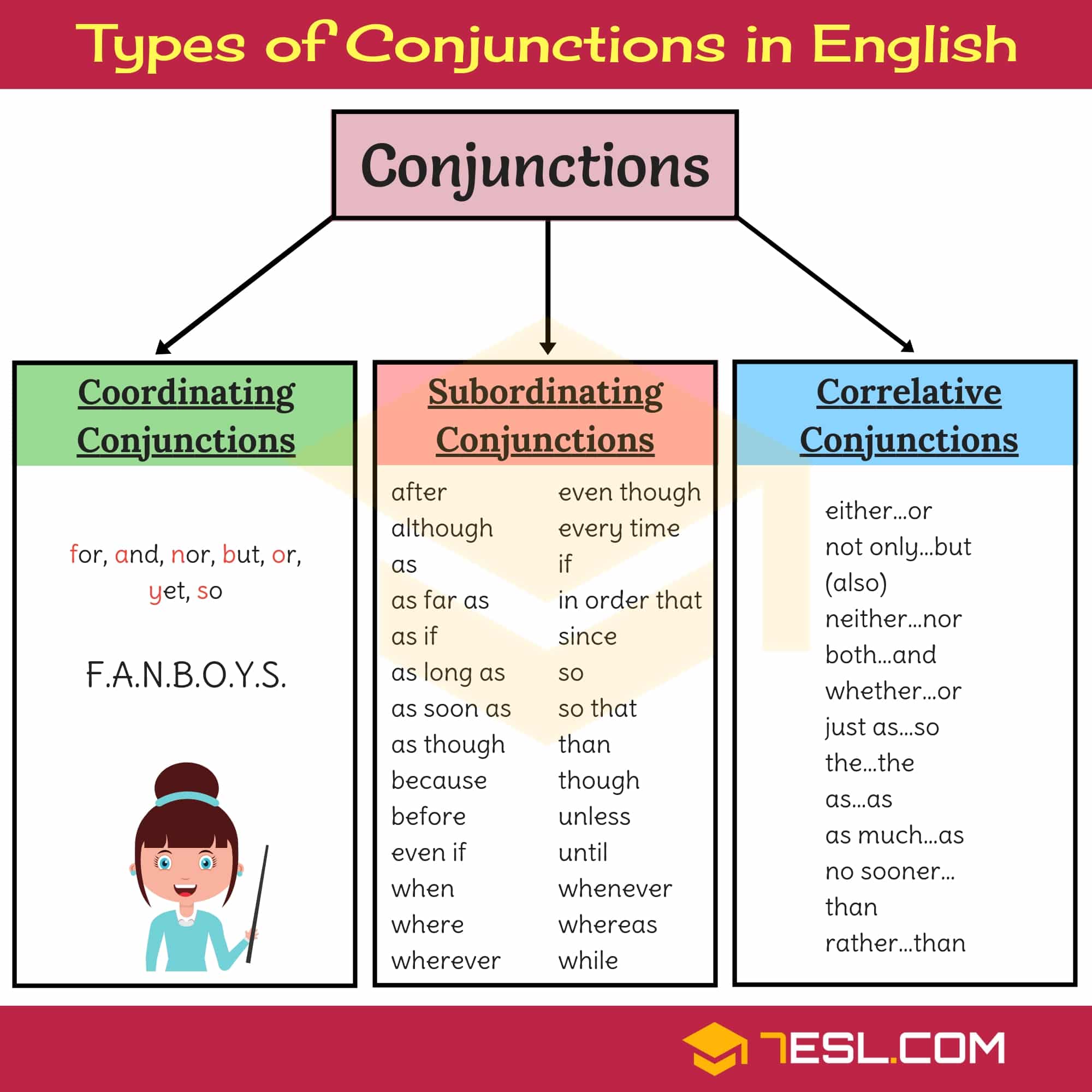What Are Articles?
- Articles are small but important words in the English language.
- Articles are considered adjectives because they modify or help describe nouns.
- Articles always come before or precede the nouns they describe.
There are only three articles in English: a, an and the.
There are two types of articles indefinite ‘a’and ‘an‘ or definite ‘the’. You also need to know when not to use an article.
In many languages, articles are a special part of speech which cannot be easily combined with other parts of speech.

How to Use A – AN | Image

Rules for Using A – AN | Image

Definite Article | The
Definition
The Definite Article ‘THE‘ generally specifies and identifies. It answers the question: ‘Which one?’ Is specifies a person, place, or thing already mentioned.
The definite article ‘the’ means this, that. It answers the question which one?. It can be used with both singular and plural nouns. A noun is first introduced with the indefinite article and the definite article is used to refer to it again.
The Article THE in Geographical Names

When Not to Use an English Article | No Article
1. We usually use no article to talk about things in general.
2. We do not use an article when talking about sports and games.
3. Do not use article before the names of countries unless the name suggests that the country is made up of smaller units or constituent parts.
Use the – the UK (United Kingdom), the USA (United States of America), the Irish Republic… (Kingdom, state, republic and union are nouns, so they need an article.)
4. Do not use article before the name of language.
5. Do not use article before the names of railway stations when they are also place names.
6. Do not use article before the names of meals if they refer to the meals generally, as a part of the daily routine.
7. Do not use article before noun + number.
When to Use No Article | Image

Articles with Countable and Uncountable Nouns
Learn how to use articles with countable and uncountable nouns in English.
You need to categorize the noun as count or noncount to choose the correct article.
- Countable nouns are individual objects, people, places, etc. which can be counted.
Examples: an apple, a school, 1 picture, 2 pictures, 3 pictures, 2 men, 4 men, 8 men.
- Uncountable nouns are materials, concepts, information, etc. which are not individual objects and can not be counted.
Examples: information, water, understanding, wood, cheese.


















